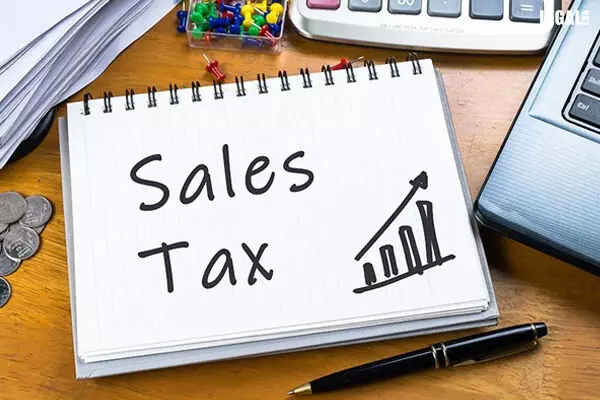- Home
- News
- Articles+
- Aerospace
- AI
- Agriculture
- Alternate Dispute Resolution
- Arbitration & Mediation
- Banking and Finance
- Bankruptcy
- Book Review
- Bribery & Corruption
- Commercial Litigation
- Competition Law
- Conference Reports
- Consumer Products
- Contract
- Corporate Governance
- Corporate Law
- Covid-19
- Cryptocurrency
- Cybersecurity
- Data Protection
- Defence
- Digital Economy
- E-commerce
- Employment Law
- Energy and Natural Resources
- Entertainment and Sports Law
- Environmental Law
- ESG
- FDI
- Food and Beverage
- Gaming
- Health Care
- IBC Diaries
- In Focus
- Inclusion & Diversity
- Insurance Law
- Intellectual Property
- International Law
- IP & Tech Era
- Know the Law
- Labour Laws
- Law & Policy and Regulation
- Litigation
- Litigation Funding
- Manufacturing
- Mergers & Acquisitions
- NFTs
- Privacy
- Private Equity
- Project Finance
- Real Estate
- Risk and Compliance
- Student Corner
- Take On Board
- Tax
- Technology Media and Telecom
- Tributes
- Viewpoint
- Zoom In
- Law Firms
- In-House
- Rankings
- E-Magazine
- Legal Era TV
- Events
- News
- Articles
- Aerospace
- AI
- Agriculture
- Alternate Dispute Resolution
- Arbitration & Mediation
- Banking and Finance
- Bankruptcy
- Book Review
- Bribery & Corruption
- Commercial Litigation
- Competition Law
- Conference Reports
- Consumer Products
- Contract
- Corporate Governance
- Corporate Law
- Covid-19
- Cryptocurrency
- Cybersecurity
- Data Protection
- Defence
- Digital Economy
- E-commerce
- Employment Law
- Energy and Natural Resources
- Entertainment and Sports Law
- Environmental Law
- ESG
- FDI
- Food and Beverage
- Gaming
- Health Care
- IBC Diaries
- In Focus
- Inclusion & Diversity
- Insurance Law
- Intellectual Property
- International Law
- IP & Tech Era
- Know the Law
- Labour Laws
- Law & Policy and Regulation
- Litigation
- Litigation Funding
- Manufacturing
- Mergers & Acquisitions
- NFTs
- Privacy
- Private Equity
- Project Finance
- Real Estate
- Risk and Compliance
- Student Corner
- Take On Board
- Tax
- Technology Media and Telecom
- Tributes
- Viewpoint
- Zoom In
- Law Firms
- In-House
- Rankings
- E-Magazine
- Legal Era TV
- Events
Karnataka High Court: Sales Tax Exemption Certificate Cannot Be Rescinded Before Expiry Date Being a Sovereign Assurance

Karnataka High Court: Sales Tax Exemption Certificate Cannot Be Rescinded Before Expiry Date Being a Sovereign Assurance
The Karnataka High Court by its division judge’s bench of Justices P.S. Dinesh Kumar and C.M. Poonacha, has held that the sales tax exemption certificate which is valid for 7 years, could not have been rescinded before the period of eligibility expired as it is a sovereign assurance.
The bench in the present case noted that the State Government had discontinued sales tax-based incentives. However, the incentives already offered and committed were saved through a subsequent Notification under the Karnataka Sales Act, 1957 (KST Act), wherein it was clarified that the incentives offered earlier would remain unaffected.
In the instant case, the petitioner/assessee claimed to be a tourism hotel unit that is a registered dealer under the Karnataka Value Added Tax Act, 2003. It is engaged in providing boarding and lodging services to its customers.
The Government of Karnataka issued a notification dated 12 November, 1999, under Section 8-A(1) of the Karnataka Sales Act, 1957, exempting the sale of food articles and beverages by new tourism units.
The Assessee had obtained an Exemption Certificate dated 25 March, 2003, from the Commissioner of Tourism, Govt. of Karnataka, Bengaluru.
The Assessing Officer (AO) issued a proposition notice on the ground that after the enactment of the KVAT Act, the exemption granted under the KST Act would apply only to new industrial units and not tourism units. The AO passed a reassessment order denying the exemption on the payment of tax on the sale of food and beverages on the ground that there was no exemption notification issued under the Karnataka Value Added Tax Act, 2003 (KVAT Act).
On appeal, the Joint Commissioner of Commercial Taxes (Appeals) [JCCT(A)] partly allowed assessee’s appeal and confirmed the denial of exemption from payment under the KVAT Act. On further appeal, the KAT allowed assessee’s appeal holding that assessee is eligible for exemption from payment of tax in view of the exemption notification issued under the provisions of KST Act.
Aggrieved by the said order, Revenue preferred a petition before the High Court.
The bench noted that the State Government had issued a Notification on 7 January, 2000, discontinuing sales tax-based incentives; the same was clarified via Notification dated 17 July, 2007, to the effect that the notification dated January 7, 2000 shall not affect the dealers who have made investments in establishing new tourism units.
Further, the Court observed, “We may further record that even in the notification dated 7 January, 2000 it is stated that the discontinuation shall not affect the incentives that have been already offered or committed by the Government until the eligibility of such incentives are completed. The eligibility certificate was valid for 7 years and could not have been rescinded before the period of eligibility expired as it is sovereign assurance.”
Therefore, the Revision petition was dismissed by the High Court.


